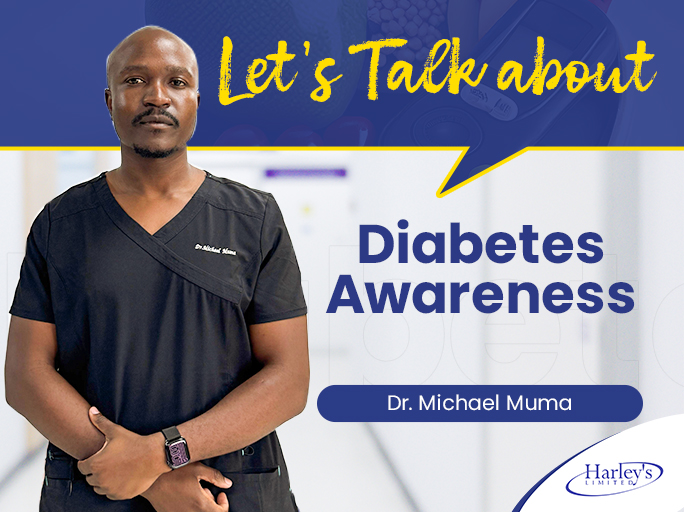Diabetes Mellitus
According to WHO1, Diabetes is a chronic, metabolic disease characterized by elevated levels of blood glucose (or blood sugar), which leads over time to serious damage to the heart, blood vessels, eyes, kidneys and nerves.
Diabetes mellitus is categorized mainly into Type 1 and Type 2 diabetes, with gestational diabetes occurring during pregnancy and other less common forms such as Maturity Onset Diabetes of the Young (MODY) only affecting 1% of the population2. Type 1 diabetes is primarily an autoimmune disorder in which the immune system mistakenly attacks and destroys insulin-producing beta cells in the pancreas. In contrast, Type 2 diabetes arises from a combination of insulin resistance and insulin deficiency. Genetic predisposition, obesity, poor diet, sedentary lifestyle, and advancing age increase the risk of developing Type 2 diabetes.
Epidemiology
According to WHO, about 422 million people worldwide have diabetes, with the majority living in low and middle-income countries. In 2019, diabetes and diabetes-related kidney disease led to an estimated 2 million deaths worldwide2.
Signs and Symptoms
The classic symptoms of diabetes mellitus include frequent urination, increased thirst, and increased hunger. These symptoms result from the body’s attempt to manage high glucose levels. Other signs, however less frequent, include fatigue, unintentional weight loss, blurred vision, slow-healing wounds, and frequent infections consequential to the immunocompromised state of diabetes.
Complications
Long-term complications of diabetes develop gradually. Chronic hyperglycemia (elevated blood sugar) damages blood vessels and organs over time, resulting in macrovascular and microvascular complications.
Macrovascular complications include cardiovascular diseases which include heart attack and stroke, while microvascular complications include retinopathy (eye damage leading to blindness), nephropathy (kidney disease), and neuropathy (nerve damage). Diabetic neuropathy may cause foot ulcers, which, if infected, can necessitate amputation. Poorly managed diabetes is also associated with an increased risk of Alzheimer’s disease and other cognitive disorders.
Management
Management of diabetes mellitus is categorized into pharmacological and non-pharmacological methods. Emphasis is placed on non-pharmacological modes of management as these may also serve to prevent diabetes mellitus in predisposed individuals.
Weight management is a crucial aspect of non-pharmacological management. Studies have shown that every kilogram of body weight lost accounts for a 0.1% drop in HBA1c levels, which is a blood test that depicts the average blood sugar over a period of 90 days2. Weight management essentially involves healthy dieting and engaging in physical activity. Kenya clinical guidelines on the management of diabetes mellitus recommend at least 150 minutes of strenuous physical activity a week. Pharmacological and surgical methods of weight management are recommended for individuals with BMIs of 40 and over. Semaglutide also known as, Ozempic, is a once-weekly administered drug that works by mimicking a hormone involved in appetite control and insulin regulation. This helps reduce hunger, leading to fewer calories consumed and consequently, weight loss.
In conclusion, diabetes mellitus is a complex, multifactorial disease with serious health implications. Early diagnosis, effective management, and patient education are essential to prevent complications and improve quality of life for individuals with diabetes.
Reference
- World Health Organization. Health: Diabetes https://www.who.int/health-topics/diabetes#tab=tab_1
- Morris et al (2021). British Journal of General Practice: Effect of weight loss on cardiometabolic risk https://bjgp.org/content/bjgp/71/705/e312.full.pdf
Written by:
Dr. Michael Muma
Medical Officer – Livegood program (Chronic Care)
Avenue Healthcare

